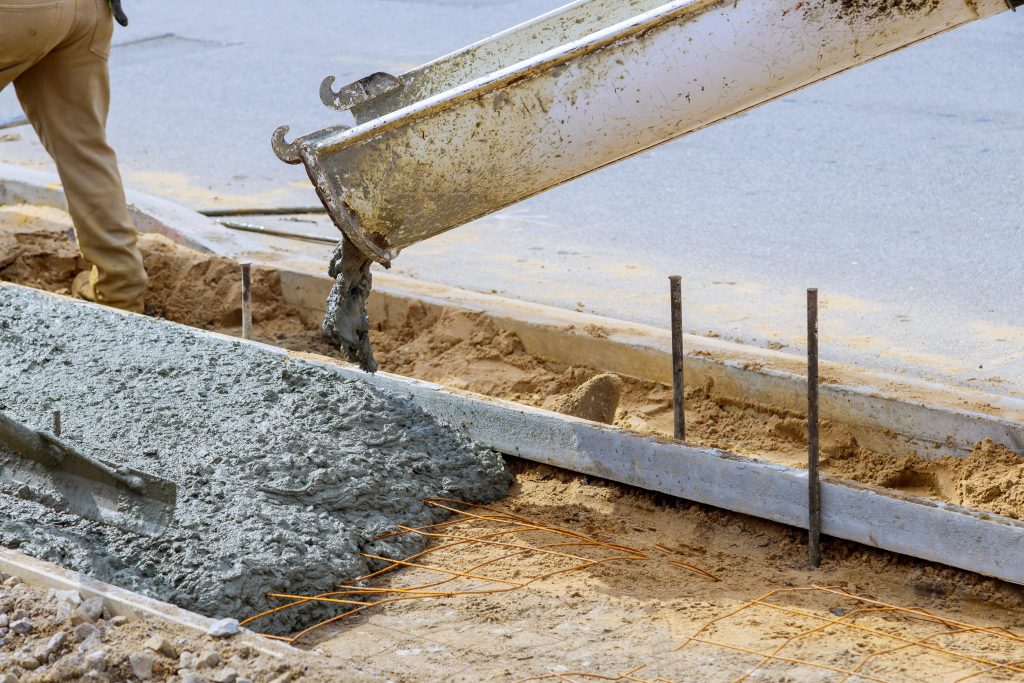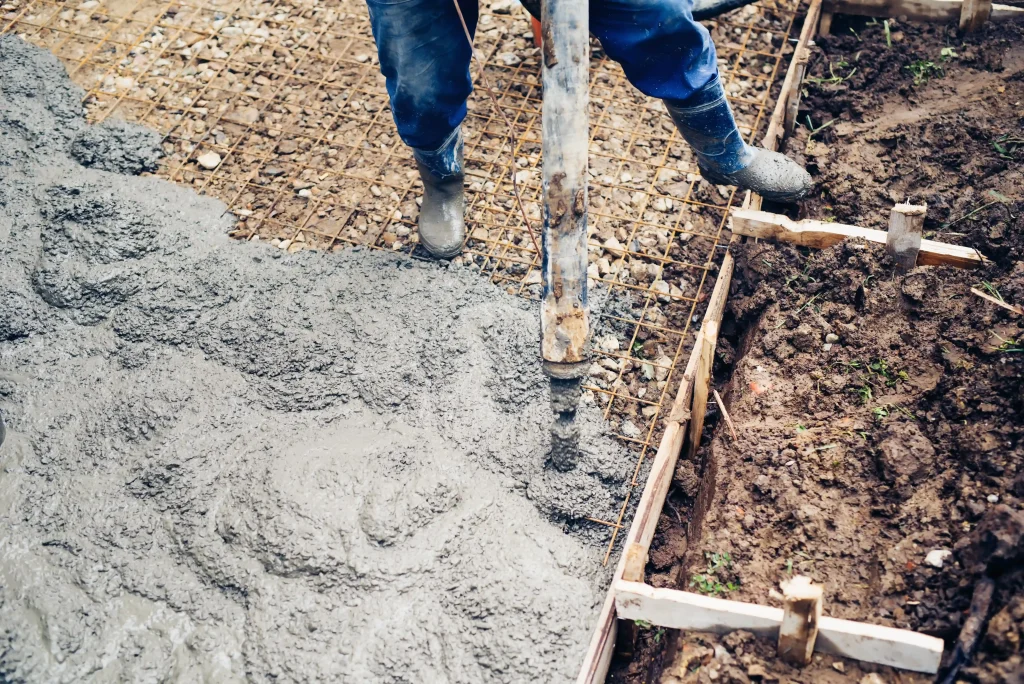Winter construction projects in London don’t have to stop when the temperature drops. You absolutely can pour concrete in winter, but working with concrete in cold weather needs extra planning to ensure your project succeeds. At Express Concrete, we’ve been helping London builders tackle winter concrete pours since 1991, and we know exactly what it takes to get the job done right.
Understanding London’s Winter Weather
London’s winter weather is generally mild compared to other parts of the UK, but it still presents challenges when working with concrete. Winter temperatures in London typically range from 2°C to 8°C, though it’s not uncommon for them to drop below zero during December, January, and February. Snow falls on an average of 16 days per year in London, though it’s usually light.
The good news is that London rarely experiences the extreme cold that makes concrete in winter impossible. However, even mild cold weather can affect how your concrete mix sets and develops strength. The ambient temperature plays a crucial role in determining whether your concrete pour will be successful.
The Key Temperature Rules for Concrete in Cold Weather
When working with concrete in winter, there are two critical temperature thresholds you need to remember:
5°C – The Magic Number Your concrete mix must be delivered at a minimum concrete temperature of 5°C and this temperature must be maintained on site using insulating material. This is the baseline temperature that keeps your concrete product safe from damage. The Concrete Society’s guidelines confirm that concrete temperature should not fall below 5°C at any point until the strength has reached 5MPa.
Why Temperature Matters When concrete in cold weather gets too cold, several problems occur:
- The water in the mix can freeze and expand, causing cracks
- The chemical reactions that make concrete strong slow down dramatically
- Setting time increases significantly
- Final strength may be reduced
If fresh concrete cools below 0°C, the water in the concrete will freeze and expand, potentially damaging the concrete so much that it becomes unfit for purpose.
Protecting Your Concrete Pour
Before You Pour
Check the Ground Never pour concrete on frozen ground, ice, or snow. If there’s frost on your site, you’ll need to wait for it to thaw or use heaters to speed up the process. Cover trenches and foundations with thermal blankets the night before your pour to prevent frost forming.
Plan Ahead Check the weather forecast for both the day of your pour and the following 48 hours. For most concretes, the critical strength of about 2 N/mm² is achieved within 48 hours if the concrete is kept at or above 5°C.
During and After the Pour
Protect the Concrete As soon as your fresh concrete is poured and finished, you must protect the concrete with insulating material like thermal blankets. This traps the heat generated during the curing process and prevents freezing. If it’s particularly windy, consider setting up windbreaks around the work area to maintain concrete temperature.
Monitor the Temperature For the first 48 hours, concrete must be protected and kept above 5°C. After this critical period, the concrete will be strong enough to resist freeze damage, though it will still cure more slowly in cold conditions.
Don’t Rush When working with concrete in winter, it takes longer to reach full strength. Don’t remove formwork too early, as the concrete may not yet be strong enough to support its own weight.
When to Delay Your Pour
Sometimes it’s better to wait for better conditions. Consider postponing your concrete delivery if:
- Air temperatures are forecast to stay below 3°C
- There’s heavy frost or ice on the ground that can’t be cleared
- Strong winds are forecast alongside low temperatures
- You don’t have adequate protective materials ready
Express Concrete’s Winter Service
At Express Concrete, we understand that construction schedules don’t stop for winter weather. That’s why we offer heated concrete service to help ensure your winter pours succeed. Our ready mix concrete is delivered at the right temperature, even on the coldest London days.
We’ve been serving London builders through every season since 1991, and we know how to handle winter challenges. Our experienced team can advise you on the best approach for your specific project and weather conditions.
The Bottom Line
Yes, you can definitely pour concrete in winter in London! The key is proper planning and protection. With London’s relatively mild winter climate, most cold weather concrete pours can succeed with the right precautions:
- Keep the concrete above 5°C for the first 48 hours
- Protect from frost, ice, and freezing winds
- Use thermal blankets and insulation
- Allow extra time for curing
- Work with an experienced supplier who understands winter requirements
Winter construction doesn’t have to mean delays. With proper preparation and the right concrete supplier, you can keep your project moving forward regardless of the season. Our ready mix concrete service includes all the support you need for successful winter pours.
Contact Express Concrete today to discuss your winter project requirements. We’ll help ensure your concrete pour succeeds, whatever the London weather throws at us.




